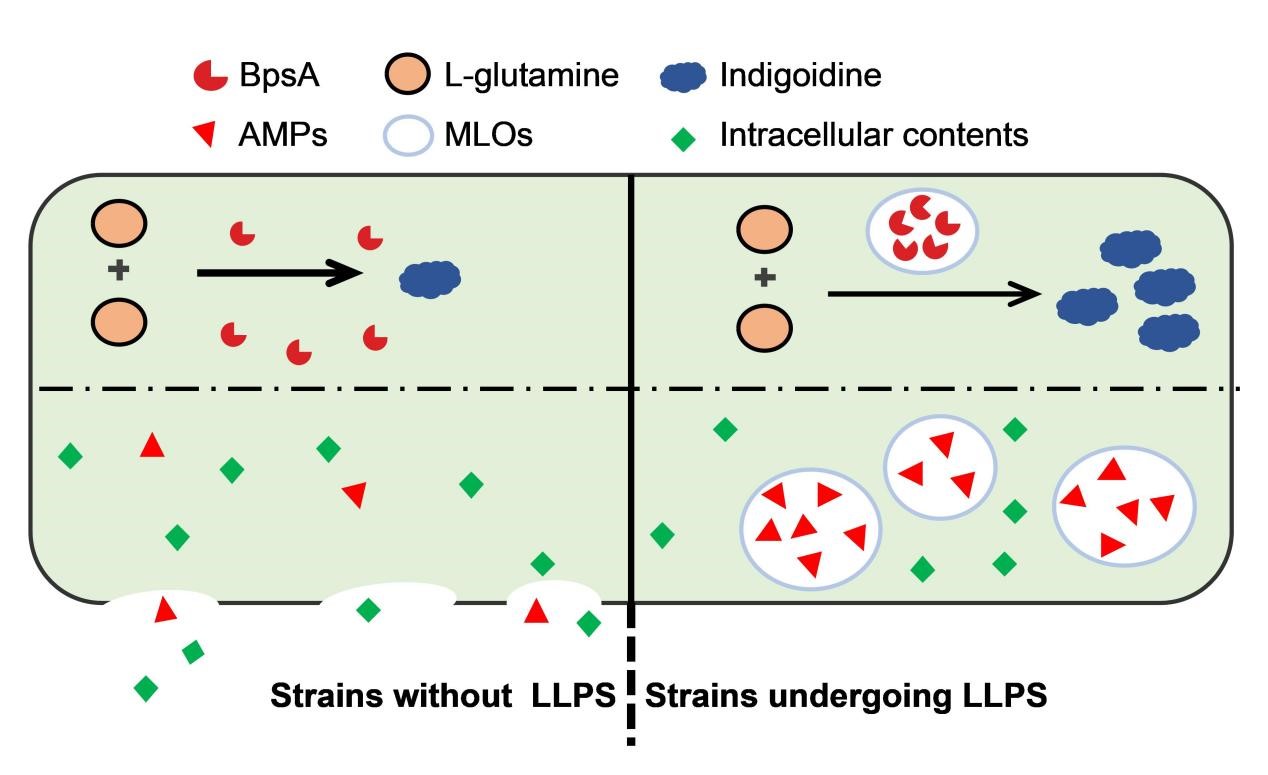
A research team led by Professor WANG Peng from the Hefei Institutes of Physical Science of the Chinese Academy of Sciences, together with international researchers, has successfully engineered liquid-liquid phase separation (LLPS)-driven membraneless organelles (MLOs) within the food-grade industrial strain Corynebacterium glutamicum.
The related findings have been published in Synthetic and Systems Biotechnology.
LLPS-driven MLOs represent an emerging technology in cell structure engineering. By dynamically isolating enzymes and substrates, LLPS significantly improves metabolic efficiency and enhances the synthesis of target products.
In this study, the researchers constructed functional MLOs in C. glutamicum, using the bio-blue dye indigoidine as a model compound. This engineering resulted in a 2.43-fold increase in indigoidine titer, demonstrating the strong potential of synthetic condensates for optimizing metabolic pathways.
Moreover, they achieved spatial isolation of antimicrobial peptides, melittin and lactoferricin B, which effectively reduced their toxicity to host cells, thus enabling successful expression of these otherwise harmful biomolecules.
"This study offers a novel strategy to overcome major industrial challenges such as low yield and high toxicity, while also advancing the applications of LLPS technology in industrial biotechnology," said Prof. WANG.
This work was supported by the National Natural Science Foundation of China (12375352), the Anhui Provincial Natural Science Foundation (2308085MC76), China Postdoctoral Science Foundation (2025M770911), and the Major Projects of Science and Technology of Anhui Province (202103a06020003).

Schematic diagram of LLPS-mediated functional membraneless organelles (Image by SUN Manman)